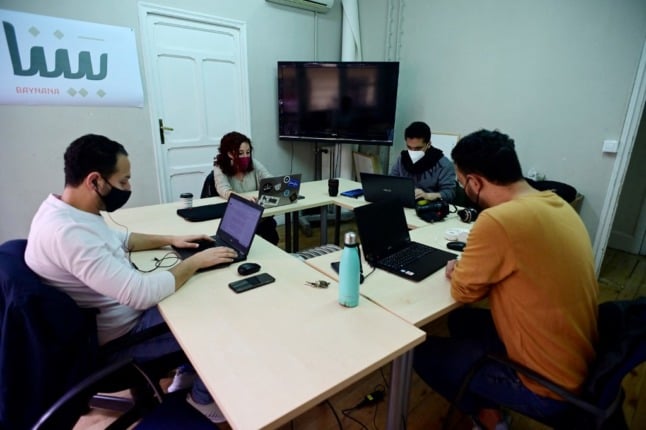It's supposed to be the cardinal rule when it comes to CVs and job applications: don't lie! But in practice it's not so clear-cut. One study found that 63 percent of people admitted to lying or exaggerating on their CV.
Just recently, the story broke that Germany's Defence Minister, Ursula von der Leyen, fiddled her CV. Von der Leyen lists stints at the prestigious US university Stanford from 1992 to 1996, which the university itself said it could not confirm.
Coming on top of allegations of plagiarism in her dissertation, this doesn't exactly do wonders for the minister's reputation.
Von der Leyen isn’t even the first German defence minister to face accusations of plagiarism. In 2011, Karl-Theodor zu Guttenberg stepped down from the post after plagiarism was discovered in his doctoral dissertation.
Nor is this kind of CV wrangling limited to German politicians. Current US vice president Joe Biden had his 1988 bid for the top spot scuppered when it came out that he hadn't been entirely truthful on his resume.
And in the UK, famous fibber Jeffrey Archer added an unearned Oxford degree to his CV, which came to light when he ran for London mayor.
These inventions haven't exactly harmed the careers of those in question – especially in the case of Archer, who used his flexible relation to the truth to build a successful thriller-writing career.
But in discussions about every scandal with my friends, the indignant reactions of some were swiftly countered by the “Everybody does it” defences of others, which in turn led to more tales of CV chicanery.
In Germany, there is yet another famous example in Christian Eberhard. A banker who dreamed of being a surgeon, Eberhard decided to make his dream come true by forging a medical degree.
He managed to perform 190 operations at the University Clinic of Erlangen before his fraud was discovered. This was despite the fact he had written his “degree” with a fountain pen, even making spelling mistakes.
How to get creative – without lying
Closer to home, a friend of mine admitted that his own CV contained a little creativity. Quite legitimately, it lists that he won the silver medal in a drama competition at high school.
What it fails to mention is that his group came second out of two with an abysmal performance of a skit written just hours before.
While probably not the only reason he has his current job at a Berlin startup, the truth behind the story certainly presents him in a different light.
Another confessed that, while his CV was accurate, he completely invented a competing job offer to push a company into offering him more. And it worked.
The lesson: cheaters prosper? Rather, it may simply be time for a little editing.
What comes across when I speak to people is that there is a big difference between a bit of padding and outright lying. Of course, I would never recommend lying – but it's just common sense to present the experience you do have in the best possible way.
It's all about dressing up the truth in some fancy clothes. People will see straight through you if you claim to be the CEO when you were an intern. But changing “I made everyone coffee” to “managing company-wide beverage orders”? That'll fly.
This is especially true when it comes to gaps in your employment. No one wants to say they were unemployed, but rather than pretending you were at a company when you weren't (it's too easy to check up on), think about what you actually did in that time.
Were you working on improving or learning skills? Did you do voluntary work or help out a friend? These things, presented in the right way, can make a world of difference.
And if you're challenged about your extravagant claims, turn it back on them: “Well, did you win the East Midlands egg-and-spoon race six years running?” Chances are, they'll buckle under the pressure and give you the job on the spot rather than be shown up.
Tom Ireland works for StartupCVs, a Berlin-based recruiting platform for startups. Find him on Twitter to get in touch.



 Please whitelist us to continue reading.
Please whitelist us to continue reading.
Member comments